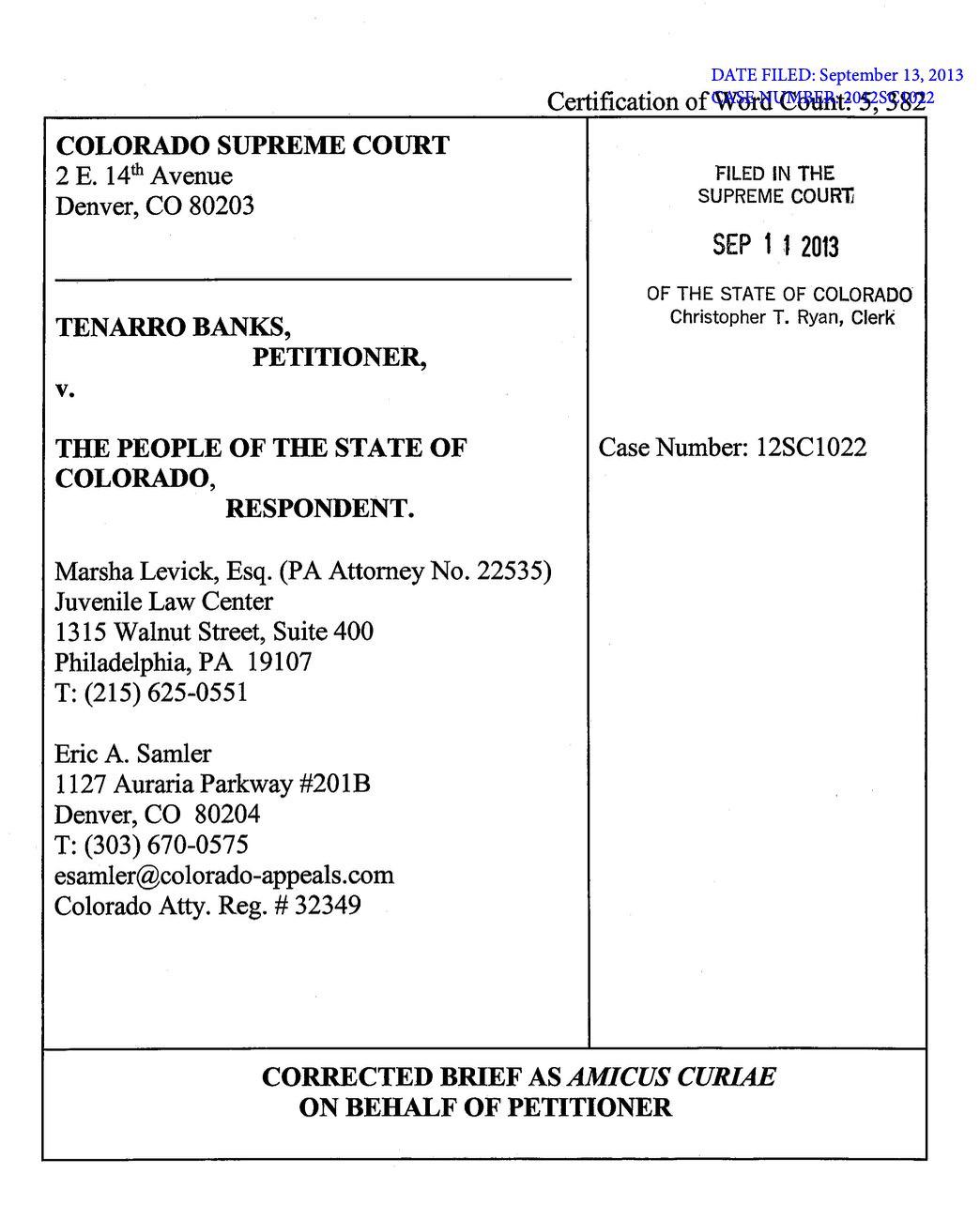
Summary of Argument
The judicially created sentencing scheme applied to petitioner is unconstitutional. Miller v. Alabama reaffirms the U.S. Supreme Court's recognition that children are fundamentally different from adults and categorically less deserving of the harshest forms of punishment. The appellate court's sentence deprives petitioner of a meaningful opportunity for release as required by Miller and Graham. Mandatory sentences of life with the possibility of parole after 40 years contravene Miller and Graham. Colorado's sentencing scheme is inconsistent with, and harsher than, emerging legislative and sentencing trends in other jurisdictions.
Petitioner should be resentenced based on the trial court's application of Miller and Graham, with guidance from this court. Miller requires the sentencer to make an individualized sentencing determination based on a juvenile's overall culpability.